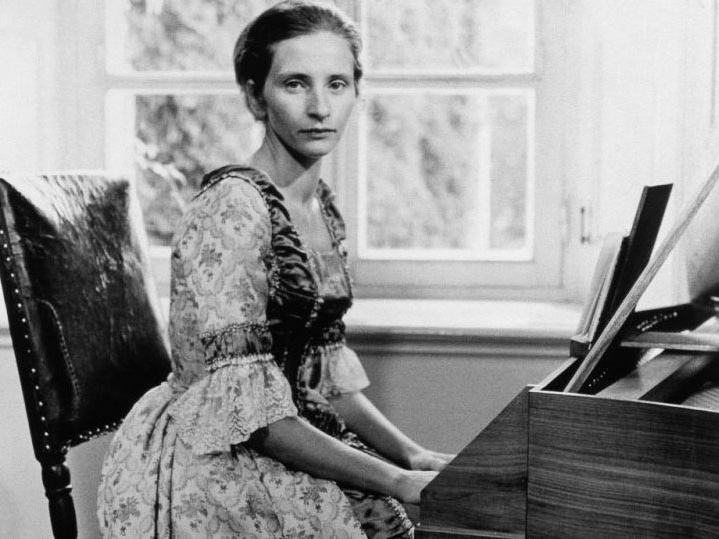
The life and music of Johann Sebastian Bach as presented by his wife, Anna.
EN
"[The reader] relives an image, negates sequences, reverses time. The poem is a mediator: thanks to the poem original time, father of all time, takes on the guise of a moment. Its sequence turns into a pure present, a source that feeds itself and transforms man."
- Octavio Paz"I remember everything simultaneously"
- Anna Akhmatova
Contemplating Time and the Visible
“The way in which the Mexican poet Octavio Paz spoke about poetry's immediacy, negating time, seems closely related to the formal aesthetics of Danièle Huillet and Jean-Marie Straub's first feature film Chronik der Anna Magdalena Bach. Chronicling the life of Johann Sebastian Bach and his second wife Anna Magdalena, Chronik consists of (mostly austere) sequences of the musical performances of Bach's music that are alternated by dialogues, depictions of texts, sheet music, and manuscripts, while the factual narrative voice of Anna Magdalena weaves through these alternating depictions. The film is an excellent example of the formal exploration of the limitations of the visible, as well as its immense possibilities, in relation to time and sound. The whole of Chronik, similarly to a poem, functions as a mediator, divided into cinematic moments, sequences that feed each other as music and the voice are utilized as ways of exceeding the imagery. Time functions as a continuous present in the film as each of the sequences represents a moment of immediacy, of 'pure present. This notion of the pure present informs the way in which we learn to listen to the musical renditions of Bach and how we view the delicate balance that comes into play between Gustav Leonhardt's and Christiane Lang-Drewanz' performances as Bach and Anna Magdalena (Leonhardt does not visibly age throughout the film), Bach's and Anna Magdalena's own historical personas, Bach's music as written down on paper and Leonhardt's musical interpretation as a musician himself. So that what eventually emerges is not necessarily a realistic portrait of a musician and his family, but rather a cinematic contemplation of music in relation to the image, through the subtle undermining of time and representation of history.”
Sofie Cato Maas1

